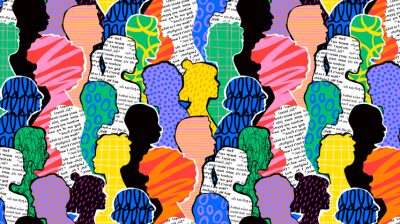How to access counselling or psychotherapy in Ireland
Looking to start therapy? Our guide to accessing counselling and psychotherapy can help you take the first step.

If you have been living with mental or emotional distress that is impacting your wellbeing, making the decision to access counselling or psychotherapy is a brave and positive step to take. Now that you’ve decided to take this step, you have two options: seeking free counselling through the HSE or accessing private counselling and psychotherapy.
In this factsheet, you will find information about:
Free counselling options
What is the difference between a counsellor and a psychotherapist?
How do I know if a counsellor or psychotherapist is qualified?
What types of therapy can psychotherapists provide?
How to access private mental health treatment without a referral
In-person versus online counselling and psychotherapy
How to access counselling or psychotherapy for free
The two main free, HSE-funded counselling options are Counselling in Primary Care (CIPC) and the National Counselling Service.
Counselling in Primary Care
CIPC is a short-term counselling service for people with mild to moderate mental health difficulties. Mild to moderate mental health difficulties are those which might affect your daily life but are not severe enough to require long-term or intensive treatment. You can get up to eight counselling sessions with a qualified counsellor or therapist through CIPC. This free service is available to adults over 18 years who are medical card holders. You will need a referral from your GP, Primary Care Psychology, or Jigsaw to access this service.
The National Counselling Service
The National Counselling Service provides free counselling and psychotherapy for adults who experienced abuse or neglect when they were a child. You don’t need a referral from your GP to access their services. You can contact your local National Counselling Service directly.
Employee Assistance Programmes and University Counselling Services
Some people can access counselling or psychotherapy through their Employee Assistance Programme (EAP) at work, which often offers six free online sessions. This type of therapy is usually solution-focused, aimed at helping you function better at work, and is usually not suitable for resolving more severe mental health difficulties or trauma. Additionally, most universities provide free student counselling, with both online and in-person options available. It’s worth checking with your employer or university to find out what free mental health support is available to you.
Jigsaw
Jigsaw offers free therapy and expert mental health support, both online and face-to-face, to children and young adults aged 12-25.
How to access counselling and psychotherapy privately
Unfortunately, there are often waiting lists if you’re looking to access counselling or psychotherapy through the HSE. This can be really discouraging. Some people will decide to access counselling or psychotherapy privately to get the support they need more quickly and without needing a referral through their GP. Private therapy isn’t tied to a specific number of sessions or a particular frequency of sessions. Many private counsellors and psychotherapists also work outside of normal office hours, offering therapy sessions during weekday evenings or at weekends.
While there are benefits to going private for mental health support, it also comes with some challenges. The costs associated with private counselling and psychotherapy mean that these services are not accessible or affordable options for everyone. However, therapists registered with professional bodies like the Irish Council of Psychotherapy (ICP) or the Irish Association for Counselling and Psychotherapy (IACP) are covered under some health insurance policies, which means that some of the cost can be claimed back. Many private therapists offer sliding cost scales based on what you can afford, and therapy is also a tax deductible health expense.
Finding a private counsellor or psychotherapist
If you can afford it, the process of finding a therapist in your area and deciding on a type of therapy can sometimes be confusing. A lot of the language and terms used are difficult to understand. You might be wondering what the difference is between a counsellor and a psychotherapist, for example. Therapists can have different letters after their names depending on the type of training they have completed and which professional bodies recognise their qualifications. There are also a range of different types of therapy that a therapist can practise.
Not all therapists are trained in the same way or have the same qualifications. That’s why learning about the language used in the world of counselling and therapy can help you find the right support for your needs.
What is the difference between a counsellor and a psychotherapist?
People often use the terms counselling and psychotherapy to mean the same thing, but this is changing. Irish psychologists and the Minister for Health now recognise counselling and psychotherapy as different disciplines. CORU are currently setting up two separate registers for counsellors and psychotherapists. CORU is Ireland’s multi-profession health regulator, which oversees health and social care professions to ensure that their members meet certain required standards of training and practice.
Some of the main differences between counselling and psychotherapy include:
- Types of mental health concerns addressed: Counselling is often used for short-term or immediate issues such as grief, relationship problems, or work difficulties. Psychotherapy, on the other hand, delves deeper into more complex and long-term mental health conditions like anxiety, depression, or trauma
- Therapeutic approaches: Counsellors tend to provide short-term, solution-focused support, whereas psychotherapists often use a range of therapeutic techniques to explore the deeper issues underlying a person’s distress
- Depth of the therapeutic work: Psychotherapists tend to focus on long-standing patterns and deeper emotional conflicts going back to childhood. Counsellors may focus on helping a person address their immediate problems in the short term
- Qualifications: The qualifications for practising counselling and psychotherapy can differ. While both require relevant training and certification, psychotherapy often demands a higher level of academic and clinical training
- Counselling is usually best suited to short-term or immediate life crises like grief, break-ups, relationship issues, or work difficulties. Psychotherapy explores mental health difficulties, such as anxiety, depression, and trauma, in greater depth.
How do I know if a counsellor or psychotherapist is qualified?
If you are searching for a counsellor or psychotherapist, you should first make sure that they are accredited by a professional body. In Ireland, there are a number of professional bodies that provide accreditation for psychotherapists and counsellors. These professional bodies set standards for how much education and training, professional practice, and self-therapy are required to become a recognised counsellor or psychotherapist. They also set out codes of ethics and procedures for handling complaints that all of their members agree to follow. When an individual has been accredited by one of these groups, it means that they meet their professional standards and they are qualified to provide a high-quality professional service.
The Irish Council for Psychotherapy (ICP)
The ICP is a professional body for psychotherapists in Ireland. Psychotherapists who are accredited by the Irish Council for Psychotherapy will have ‘ICP’ after their name. ICP-registered psychotherapists have all trained to Masters level and are compliant with all European Association of Psychotherapy (EAP) European standards for Psychotherapy. They will have completed seven years of training before beginning their independent practice.
The Irish Association for Counselling and Psychotherapy (IACP)
The IACP is another professional body which covers both psychotherapists and counsellors. IACP registered counsellors and psychotherapists are appropriately qualified and work to recognised professional standards. They also follow the IACP code of practice. Professionals who are accredited by the Irish Association for Counselling and Psychotherapy will have ‘IACP’ after their name. If you decide to choose an IACP-accredited psychotherapist, make sure that the person has a Degree in Counselling and Psychotherapy (usually associated with the letters ‘BSc’ after their name).
The Irish Association for Humanistic and Integrative Psychotherapy (IAHIP)
Some psychotherapists may be accredited by the Irish Association for Humanistic and Integrative Psychotherapy (IAHIP), a professional body that upholds the training standards and ethics of humanistic and integrative psychotherapists. Read more about humanistic and integrative psychotherapy, a type of psychotherapy, in our article on the different types of psychotherapy. Alternatively, skip ahead to the section on humanistic and integrative psychotherapy in this factsheet. If you are interested in working with a humanistic and integrative psychotherapist, you can find someone who is qualified IAHIP-accredited psychotherapist on the IAHIP directory of therapists.
When starting therapy, it’s also important to ask yourself whether the therapist you’re meeting feels like a good fit for you. If you don’t feel safe or comfortable with a therapist after giving it a fair chance, even if they have the right qualifications, it’s perfectly okay to seek out a different therapist. Remember, therapy should feel like a safe space for you to explore your thoughts and feelings, and you deserve to find the right fit.
How to access counselling and psychotherapy privately without a referral
It’s important to choose a counsellor or psychotherapist who is accredited by a professional body. That way you know that they’re fully qualified. Therapists expect to be asked questions before someone starts therapy with them. These questions might relate to their qualifications, the professional body they belong to, their fees, or their therapeutic approach. This means that you can ask as many questions as you need before deciding if you would like to work with them.
The ICP has a national register of psychotherapists on their website that contains a list of all the psychotherapists who are currently accredited by them. Their register has a helpful search function which allows you to find psychotherapists who are in your county. You can also search by gender, language, type of mental health issue and whether or not the psychotherapist takes private referrals.
The IACP has a similar register of accredited counsellors and psychotherapists that you can search on the homepage of their website. You can search for therapists who offer either in-person or online/telephone support. Their register also contains information on the cost per session with each of their therapists and whether or not their prices are negotiable. Some therapists will provide therapy at reduced rates for people on lower incomes, like students and part-time workers.
MyMind provides affordable counselling and psychotherapy in a number of centres across Ireland. They also provide online therapy across the country. The fees for receiving therapy through MyMind are calculated on a sliding scale, meaning how much you pay is based on your financial means. MyMind services are available in more than 20 different languages. If you cannot make it to a centre, you can also have video sessions online.
In-person versus online counselling and psychotherapy
Many counsellors and psychotherapists offer the opportunity to attend virtual sessions through platforms such as Zoom, Skype, Google Meet and Microsoft Teams. Research shows that virtual sessions can be just as effective as in-person sessions. They are often more convenient in terms of travel and scheduling. Some psychotherapists offer a blended hybrid approach that can include in-person, virtual (video), text-based and phone-based therapy sessions. Discuss these options with your psychotherapist and find the best approach for you.
What types of therapy can psychotherapists provide?
Mental health professionals use a wide range of therapeutic approaches to help people improve their mental health. Each approach works in a different way and comes with its own standards of training. The ICP recognises five types of therapy that psychotherapists can train in.
Below is a short description of the five types of therapy and what each involves.
Cognitive Behavioural Therapy
Cognitive behavioural therapy (CBT) works on the premise that our thoughts affect our behaviours and feelings. CBT therapists believe that our thoughts are shaped by how we perceive our life circumstances or situations.
In CBT, you and your therapist work together to empower you to improve your quality of life. The therapist will help you develop effective strategies and skills to resolve problems that are causing you distress. CBT usually involves some “homework” with different types of worksheets that can help you achieve clarity around your thinking process. People who like logical frameworks often enjoy this approach.
CBT can be used to treat a variety of conditions. These include anxiety disorders, eating disorders, phobias and depression. Each CBT session usually lasts between 30 and 60 minutes.
Couple and Family Therapy
Unlike individual therapies, couple and family therapy can include couples or entire families in the therapy process. This approach looks at couples and families as systems that can significantly impact the lives of each member of the system.
Psychotherapists can also use this approach to work with individuals. Psychotherapists working individually with you might ask you to consider inviting a third party into the room with you. This can help the psychotherapist understand your life better, help you communicate your issues in a safe and calm manner with a family member, partner or friend.
When two or more people live close to one another, conflicts can often happen. If there is a source of emotional or psychological distress within a family system, the therapist will support all of the members of the system to explore it together. This process will help the members of the system to understand and make sense of their experiences. People usually engage in this form of therapy for a relatively short period of time, with about two to four weeks between sessions.
Humanistic and Integrative Therapy
Humanistic and integrative therapy aims to understand you as a whole person, including your body, feelings, and mind. This therapeutic approach focuses on the inner value of each person. Individuals are seen as constantly growing and changing as they move through life. The goal of this therapy is to identify what might be stopping a person from being true to themselves, remove these obstacles, and help them work towards reaching their full potential.
Humanistic and integrative therapy can be used to treat a range of mental health issues, including depression, anxiety, panic disorders, personality disorders, schizophrenia, addiction, and relationship difficulties. Psychotherapists working in this way may co-design a strategy with you that matches your personality and requirements at the time. They might use elements of different types of psychotherapy, depending on your needs. For example, they might introduce CBT to help you identify how your thoughts impact your behaviour. This might be followed-up in subsequent sessions with a discussion of your past and early childhood.
Psychodynamic Therapy
Psychodynamic therapy helps people better understand their unconscious emotions and motivations. This deeper understanding can help them get to know their thoughts, behaviours, and actions. This type of therapy is mainly used to treat long-term mental health difficulties, such as anxiety and depression. However, people with short-term worries or emotional concerns can also benefit from it. In general, individuals engage in psychodynamic therapy over many months to several years.
The “therapeutic alliance” or collaborative relationship you build with your therapist is really important. When you trust your therapist, you’re more likely to fully engage in the process. This might include exploring hidden feelings and memories that influence how you behave and relate to others now. This process should always happen in a safe, controlled environment at a pace that feels manageable for you.
Feeling overwhelmed and want to talk to someone?
- Get anonymous support 24/7 with our text message support service
- Connect with a trained volunteer who will listen to you, and help you to move forward feeling better
- Whatsapp us now or free-text SPUNOUT to 50808 to begin.
- Find out more about our text message support service
If you are a customer of the 48 or An Post network or cannot get through using the ‘50808’ short code please text HELLO to 086 1800 280 (standard message rates may apply). Some smaller networks do not support short codes like ‘50808’.






